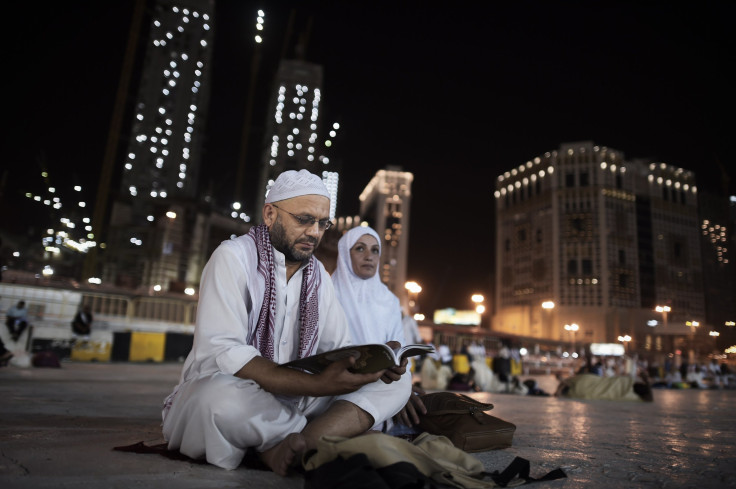Ramadan 2015: Mecca Visits Top 14 Million, Breaking Record For First 16 Days Of Muslim Holy Month

A record number of Muslims visited the holy city of Mecca during the first 16 days of Ramadan, the Muslim holy month of fasting, prayer and reflection. In all, more than 14 million Muslims visited the city, a 40 percent increase over the same period in 2014, according to the Central Haj Committee, Arab News reported.
Roughly 5 million of those visitors were foreign to Saudi Arabia. Such trips are known as Umrah, or a minor pilgrimage to Mecca, the holiest city in Islam. These visits can be made at any time during the year. Mecca is home to the Grand Mosque, which in turn houses the Ka’aba, the black cube which all Muslims turn to face when they pray.
In the first ten days of Ramadan this year, which began at sunset June 17 and is expected to end the evening of July 17, nearly eight million visited Mecca’s Grand Mosque, almost 50 percent more than visited the site the previous year.
In recent years, the centuries-old tradition of Umrah has acquired more modern dimensions to the irritation of some worshipers. Taking selfies at the Grand Mosque and in front of the Ka’aba has provoked the ire of some clerics, even as younger Muslims argue that it livens the prospect of traveling to Mecca.
"Selfies are just a way to make the memory last in the coolest possible way. Haj is always seen as something very serious and for older people. Selfies make it cool again," Amir Marouf, a 30-year-old Egyptian, told Reuters in October.
Umrah differs from the Hajj, or the major pilgrimage to Mecca that must be undertaken during the ninth through the thirteenth days of Dhu Al-Hijjah, the twelve month of the Islamic calendar. In 2015, Hajj is expected to last from Sep. 21 through Sep. 26. The Hajj is one of the five pillars of Islam. Every Muslim, provided he or she is physically and financially able, must visit the holy city at least once in their lifetime.
© Copyright IBTimes 2024. All rights reserved.












